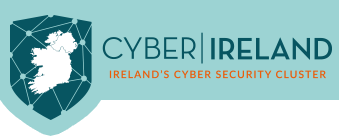The Joint Committee on Transport and Communications met on the 31st May 2023 for discussion on a Common Vision for Cyber Security.
Summary of the opening statement made by Cyber Ireland’s Chairperson, Pat Larkin:
“Chairperson, Committee Members, it is my pleasure to attend this committee in my role as chairperson of the advisory board of Cyber Ireland. Cyber Ireland’s raison d’etre is collaboration, co-ordination, and leadership to develop our sector. We are delighted to be here today with this wider and diverse group, a number of whom are Cyber Ireland members. Our common purpose is to articulate and execute a common vision for cyber security for Ireland. We believe that Cyber Ireland as an already established and functioning resource is best placed as the tip of the arrow to help develop, coordinate and lead on this common vision.
Ireland’s Cyber Opportunity
Ireland has become a significant base of international technology and security companies.
The inaugural “State of the Cyber Security Sector 2022” report1 was published in 2022, mapping the size and make-up of the cyber security sector for the first time:
- 160 pure-play cyber security companies & 300 companies with cyber operations in Ireland
- Employing 7,500 people, with revenues of > €2bn p.a. and contributes €1.1 bn in gross value add to the economy p.a.
Ireland is uniquely placed to benefit from increased global investment, it has an opportunity to position itself as a global leader for cyber security talent, innovation and investment.
The report highlights the potential growth of the sector to 2030 to support over 17,000 jobs and €2bn in gross value added (GVA).
Cyber Ireland’s Position Paper, ‘Achieving Our Cyber Potential 2030,’ published in 2022 presented recommendations on how to realise the our Cyber Potential and growth targets by addressing key challenges, calling for a collaborative approach from stakeholders across industry, academia and government:
- Need for improved government coordination and prioritisation of cyber security;
- Scale and mature the indigenous cyber security sector;
- Address the cyber security skills shortages in industry and public sector;
- Address the fragmented, and under-support R&D landscape, low level of collaborative security R&D between industry – academia in Ireland.
A mature and diverse cyber security industry will play a significant role in supporting Ireland’s National Cyber Resilience. This has been demonstrated internationally across leading cyber security nations who have supported and developed strong cyber security industry sectors, such as the United States of America, United Kingdom, Australia, Netherlands, Israel, among others.
We have the following recommendations for the committee:
- Government Coordination – A whole of government approach is required to ensure Ireland improves its cyber security commitment and delivers on the National Cyber Security Strategy vision of “an Irish society that can continue to safely enjoy the benefits of the digital revolution and can play a full part in shaping the future of the internet”. This highlights the need for better coordination in government to cyber security, which should be led by the NCSC within the Department of Communications.
- Cyber Security Campus – Ireland should invest in a cyber security campus bringing together the key stakeholders across government, industry and academia that contribute to our national cyber resilience under one branded entity. The campus will provide a centre of gravity for cyber security in the state, coordinating government departments and agencies (across NCSC, AGS & DF), supporting enterprise development from start-ups, SMEs to MNCs, providing training and enhancing technological innovation in most likely some form of hub and spoke model. It should also engage with the public, supporting cyber security awareness and education, strengthening a digital society. International examples already exist, such as the French Cyber Campus2, Hague Security Delta Campus3 Netherlands, the Cybercampus Sweden4, and CSIT in Belfast5 – the UK’s Innovation and Knowledge Centre (IKC) for secure information technologies.
- Talent pipeline: Train up 10,000 new professionals with cyber security skills to create a sustainable pipeline of talent for the private and public sector, including government funding for a national cyber education and career programme for primary and post primary schools.
- Deliver a Cybersecurity Baseline Certification for all companies in Ireland (such as UK Cyber Essentials), and a requirement for companies supplying public sector bodies to be certified.
- Cyber Security to be designated as one of 5 National Clusters under the Department of Enterprise’s National Cluster Programme by 2025.
Investing in Cyber security is unique amongst National Security Spend. If we can move our National Cyber Security capabilities to European and Global leadership status we will secure our digital economy, our digital society and our citizens. In doing so we will project Ireland as leader in Cyber Security practice and innovation, with a very real opportunity to generate 5 to 10X orders of magnitude of return on this national investment.”

